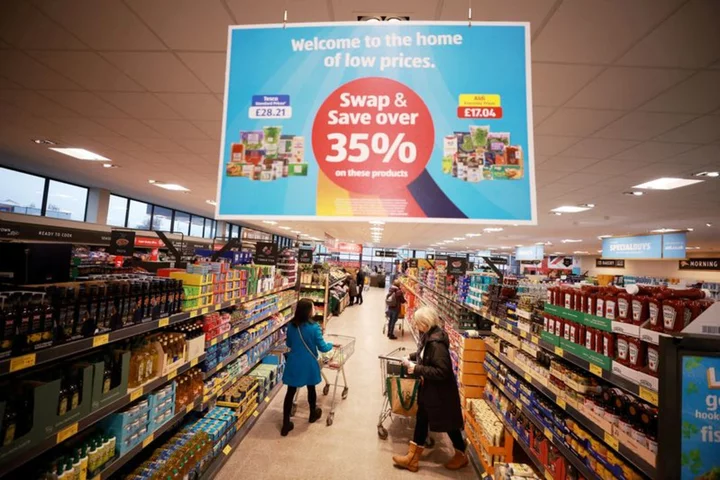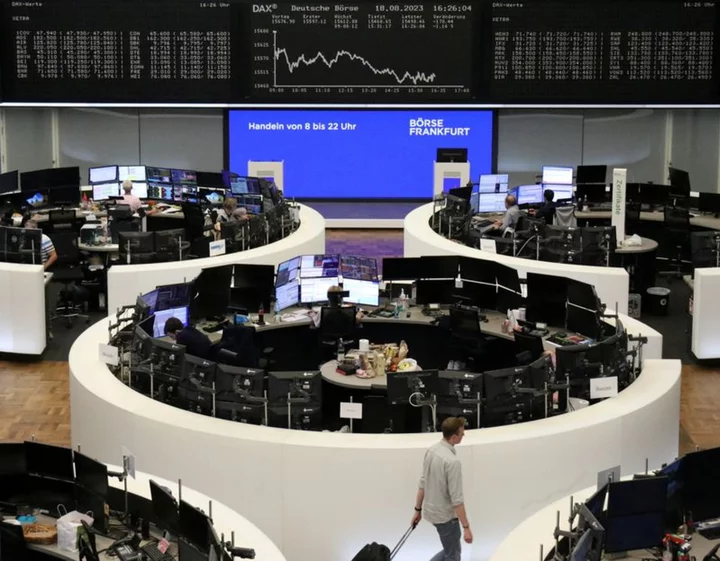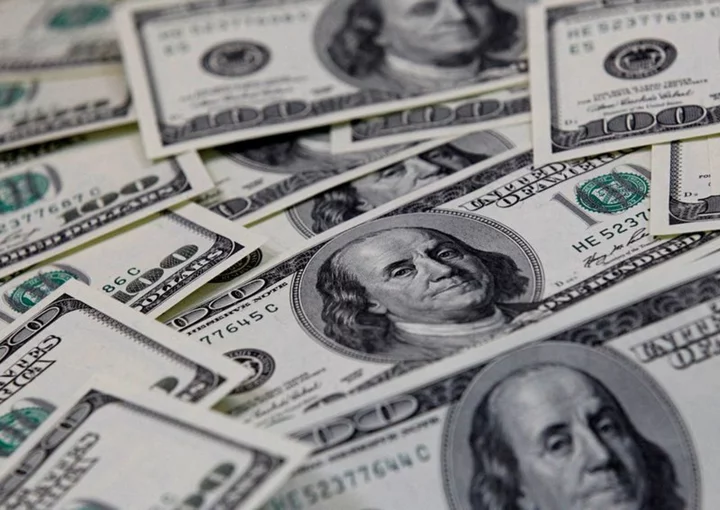By William Schomberg and David Milliken
LONDON (Reuters) -British voters are set to suffer a "living standards disaster" as they face an unprecedented fall in household incomes between one national election and the next, even taking Jeremy Hunt's new tax cut plan into account, a think tank said on Thursday.
Finance minister Hunt offered a bigger-than-expected cut in national insurance contributions in a budget update on Wednesday which was widely seen as designed to help Prime Minister Rishi Sunak's Conservative Party in an election expected in 2024.
The opposition Labour Party is around 20 percentage points ahead of the Conservatives in opinion polls.
But Hunt's 10-billion-pound ($12.5 billion) payroll tax giveaway is dwarfed by employment tax increases since the Conservatives won the 2019 election, including his decision to freeze income tax thresholds a year ago, pushing more earners into higher tax brackets.
"This parliament is set to achieve a truly grim new record: the first in which household incomes will be lower at its end than its beginning," Torsten Bell, chief executive of the Resolution Foundation, said.
Britain's public finances are under strain after huge government spending to prop up the economy during the COVID pandemic and then to subsidise household energy bills when Russia's invasion of Ukraine caused gas prices to surge.
Furthermore, debt costs on 2.6 trillion pounds of public debt have leapt as interest rates soared, leaving Hunt with limited room for manoeuvre on tax cuts or increased spending.
The Resolution Foundation said household disposable income per person was expected to fall by 1.5% in 2024, when adjusted for Britain's still high rate of inflation.
That would be the first such fall in an election year since 1974, if a vote is confirmed.
Between December 2019, when Britain's last national election took place, and January 2025, the deadline for the next one, households are due to be poorer by an average of 1,900 pounds, or 3.1%, the think tank said.
"The challenges facing Britain in the 2020s might make things difficult for policy-makers, wrestling as they must with the testing interaction between the economic and political cycle," the Resolution Foundation said.
"But those challenges have also made things far more difficult for households: this is what a living standards disaster looks like."
PANDEMIC COSTS
Gareth Davies, a junior finance minister, defended the government's record, saying tax thresholds rose sharply under previous Conservative-led administrations since 2010, helping many earners, but the pandemic had brought unavoidable costs.
"We fundamentally believe as a government that you should pay back your debts. And that then means having to make some really difficult decisions when it comes to public spending but also raising revenue," he told Reuters.
While real-terms spending is rising overall, high inflation means budgets will now fall faster for many public services such as local government, prisons, courts and job centres, which already suffered a big squeeze in the 2010s.
"The answer isn't always more money. It's about being more productive. That's what a business would do, and we have to apply that to the public services as well," Davies, who is Exchequer Secretary to the Treasury, said.
But Ben Zaranko, a senior research economist at the Institute for Fiscal Studies, another think tank, said it was inconceivable that spending cuts of the size implied in Hunt's plan would not hurt public services.
"Unless you can find some magnificent, heroic productivity improvements in those areas, it seems likely that the range and quality of public services would have to suffer," he said.
The IFS said the way Hunt chose to cut taxes at the expense of public services and investment potentially undermined his aim of boosting growth and could make his tax cuts unsustainable.
IFS director Paul Johnson said that challenge was likely to fall to the next government.
"This was a very big Autumn Statement," he said. "It leaves a lot of questions unanswered and I don't think we are going to get those questions answered until after the next election."
($1 = 0.8025 pounds)
(Editing by Sharon Singleton; Editing by Emelia Sithole-Matarise)









